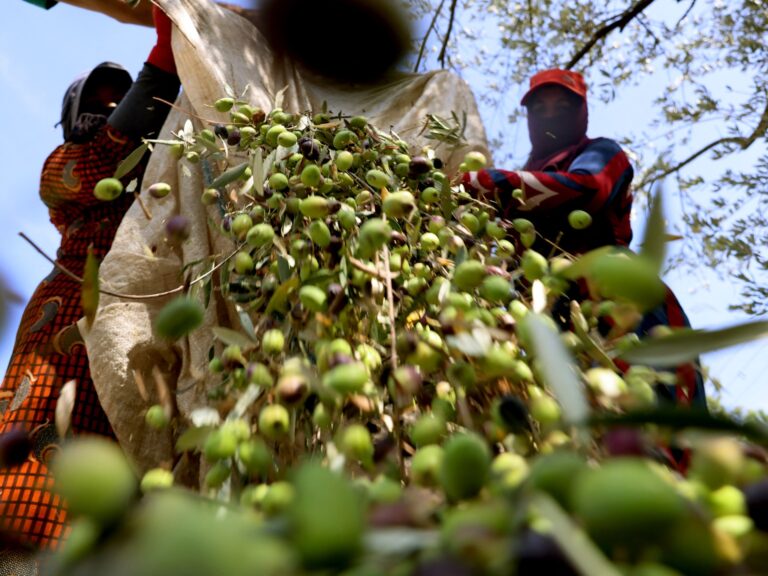Farmer Ghassan Hassan and his employees have toiled tirelessly to reap olives in fields close to Lebanon’s southern border, undeterred by close by Israeli bombardments and the thrill of surveillance planes.
The olive harvest is a vital supply of revenue for villagers, however this yr the season coincided with cross-border exchanges between Israeli forces and the Iran-backed Hezbollah, because the struggle between Israel and Hamas rages in Gaza. It has been reported that the exchanges additionally concerned Hamas’s Qassam Brigades and Palestinian Islamic Jihad’s Al-Quds Brigades.
“Whereas we’re working, planes are flying overhead day and night time, making the employees apprehensive. Typically they’re so scared that they go away,” stated Hassan, in his fifties, who picks inexperienced and purple olives close to the city of Hasbaya.
“This yr is completely different from the earlier ones,” he added.
As he spoke, certainly one of his employees acquired information that his village had been hit by a bombing. He stopped work and frantically tried to name kin with shaking palms. When he heard that they had been all secure, he breathed a sigh of reduction and went again to work.
Since Hamas fighters crossed the Gaza border on October 7, killing 1,400 folks, Israeli warplanes have been bombing the Palestinian territory, killing practically 10,000 folks.
The violence has additionally sparked a wave of unrest alongside the Israel-Lebanon border.
At the least 63 folks have been killed in Lebanon, principally fighters but in addition 5 civilians, in response to an AFP depend. Eight troopers and civilians have been killed on the Israeli aspect of the border.
Escalating gun battles have made olive choosing close to the border notably harmful. However regardless of frequent shelling within the space and the continuous buzz of reconnaissance planes, farmers haven’t stopped working their land.

